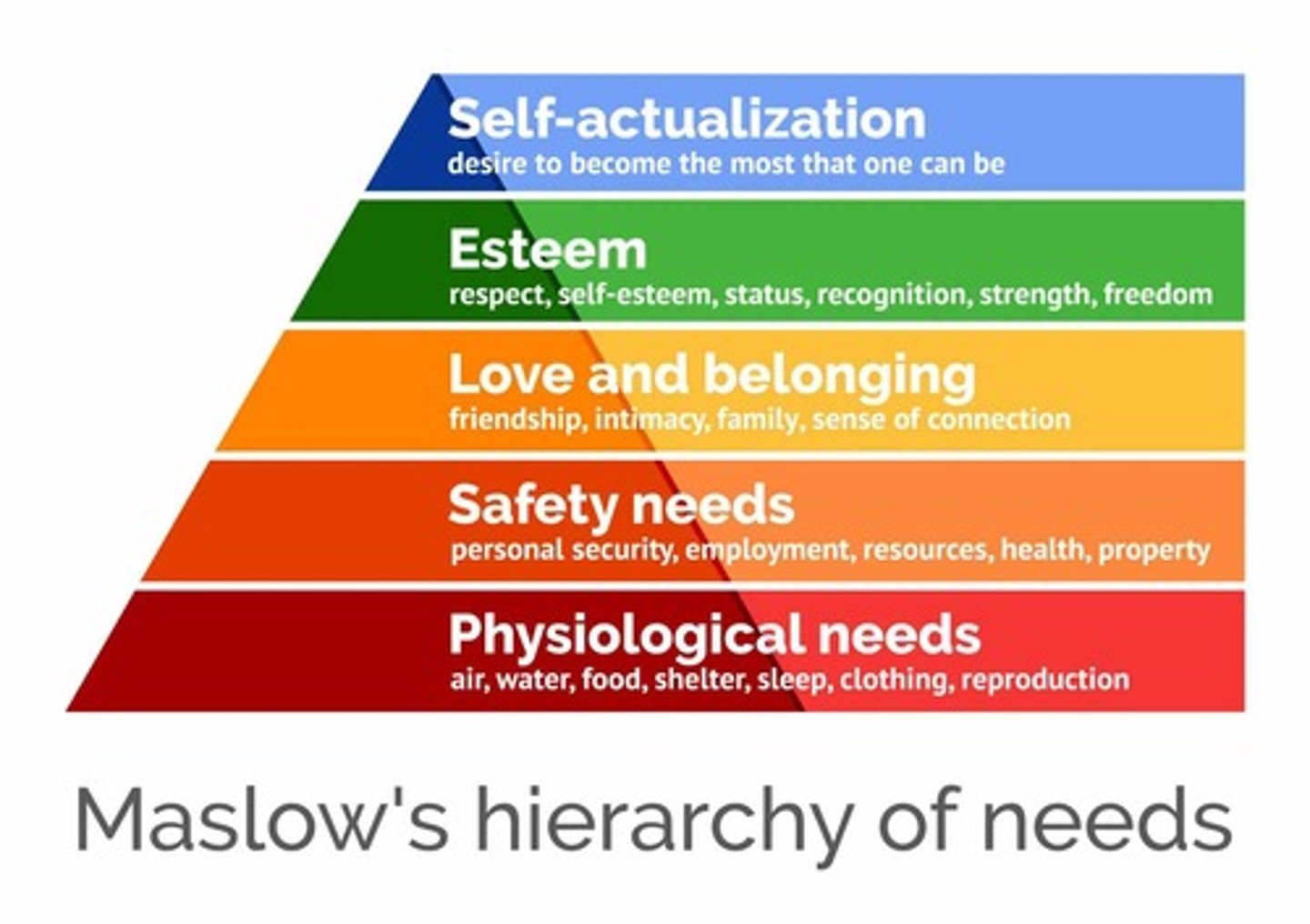Maslow's Hierarchy of Needs in Persuasive Speeches
1/13
There's no tags or description
Looks like no tags are added yet.
Name | Mastery | Learn | Test | Matching | Spaced |
|---|
No study sessions yet.
14 Terms
Maslow's Hierarchy of Needs
a psychological theory that arranges human needs into a hierarchical structure. It suggests that people are motivated to fulfill basic needs before moving on to higher-level needs.

Physiological Needs
the basic requirements for human survival, such as food, water, shelter, and sleep.
Safety Needs
the need for stability, security, and protection from physical and emotional harm.
Love and Belonging Needs
the desire for affection, friendship, and connection with others.
Esteem Needs
feelings of self-worth, achievement, and recognition from others.
Self-Actualization
realizing one's full potential, pursuing personal growth, and achieving self-fulfillment.
Application of Maslow's Hierarchy in Persuasive Speech
Maslow's Hierarchy of Needs can help speakers craft persuasive messages that resonate with their audience's fundamental needs.
Example of Physiological Needs in Speech
In his famous 'I Have a Dream' speech, Martin Luther King Jr. addressed the basic human need for equality and justice, appealing to the physiological need for safety and security for African Americans.
Example of Safety Needs in Speech
During World War II, Winston Churchill's speeches rallied the British people, addressing their safety needs by promising to defend their homeland against Nazi aggression.
Example of Love and Belonging Needs in Speech
In his inaugural address, John F. Kennedy appealed to Americans' sense of unity and belonging, famously stating, 'Ask not what your country can do for you - ask what you can do for your country.'
Example of Esteem Needs in Speech
In her speech at the 2013 Academy Awards, actress Lupita Nyong'o addressed the issue of beauty standards and self-esteem, sharing her personal journey and empowering others to embrace their uniqueness.
Example of Self-Actualization in Speech
Steve Jobs' commencement speech at Stanford University encouraged graduates to follow their passions and pursue their dreams, embodying the concept of self-actualization.
Nelson Mandela's Speeches
Nelson Mandela's speeches during the anti-apartheid movement in South Africa inspired hope and resilience, addressing the esteem needs of oppressed individuals.
Abraham Lincoln's Gettysburg Address
The Gettysburg Address appealed to the nation's need for unity and healing after the Civil War, addressing both safety and belongingness needs.